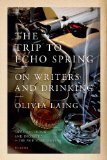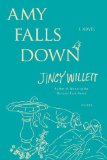Summary | Excerpt | Reviews | Beyond the book | Read-Alikes | Genres & Themes | Author Bio

A Writer's Journey Home
by Howard F. MosherCancer is the impetus that gets Howard Frank Mosher rolling on the road trip he describes in The Great Northern Express. He makes sure you know, however, that this is not "an inspirational memoir extolling how, with the help of a brilliant doctor, a breakthrough procedure in radiation therapy, and a supportive family, I licked prostate cancer."
Mosher admits to having had writerly fantasies about the day he would receive a momentous letter in the mail telling him he's won a genius grant for lifetime achievement. When an important letter does show up, it's not the one he wants, but he chooses to read his cancer diagnosis as his own personal MacArthur Fellowship. As soon as he finishes his radiation treatments, he launches on a meandering cross-country book tour conducted in the spirit of carpe diem. A litany of seedy hotels and wonderful independent bookstores follows, as does an ongoing conversation about how he started down the road of his career path. Often, as he ponders where he's been, he converses with imaginary interlocutors in the front seat - Mark Twain, Oliver Sacks, his deceased Uncle Reg, or a beer-swilling fellow he calls "The West Texas Jesus."
Mosher's voice is ebullient. His sense of humor plays lightly on themes of literature, mortality, and nostalgia, as if he were composing jazz riffs on an old banjo. Carl Hiaasen is quoted on the book jacket, comparing Mosher to Mark Twain - and the comparison is apt. It's a pleasure to be traveling in the company of his well-trained eye, always on the look-out for absurd conjunctions of American life. Like Twain, he locates poetry in the realm of the everyday - in the roadways and hotels and regular folks along the way. He also makes a point of encountering literature in its natural element - the diverse and non-standardized world of the slightly funky and highly endangered independent bookstore. There is an understated sense that he is celebrating an America that is itself in decline; as the author feels his own mortality, so too do the bookstores and the unique, distinct geographical regions Mosher admires.
In his previous novels about "The Kingdom," the northeastern corner of Vermont, Mosher finds a place in the fine, old American literary tradition of regionalism. Threaded through The Great Northern Express is a narrative that unfolds how Mosher came to that region in 1964 and made it his own. He describes the process by which he and his wife Phyllis settled in The Kingdom, how they entered into the local culture and made the choice to stay there. It's a fascinating story and, in our rootless age, an uncommon one.
Mosher begins to convey his weariness by the end of the book - as his post-radiation body and his twenty-year-old Chevy (dubbed the "Loser Cruiser") grow tired from the time on the road, the reader may flag a little. There are moments when the paragraphs about the kind owners of yet another independent bookstore seem obligatory. Still, the humor and the growing connection to the characters in his stories keep the book moving forward. I came away with a strong feeling that my journey with Howard Frank Mosher was just beginning. Perhaps the perfect reader for this book would be someone who already knows Mosher's work and can read it as the summary of an already beloved career. But readers who, like me, are meeting Mosher for the first time, may find this a delightful send-off into the world of his novels.
![]() This review was originally published in The BookBrowse Review in April 2012, and has been updated for the
March 2013 edition.
Click here to go to this issue.
This review was originally published in The BookBrowse Review in April 2012, and has been updated for the
March 2013 edition.
Click here to go to this issue.

If you liked The Great Northern Express, try these:

by Olivia Laing
Published 2014
Why is it that some of the greatest works of literature have been produced by writers in the grip of alcoholism, an addiction that cost them personal happiness and caused harm to those who loved them?

by Jincy Willett
Published 2014
A scathingly funny and wickedly humorous roman-a-clef by one of our most acclaimed literary humorists - about a bitterly uninspired writer who decides to change her life after a freak accident.
Never doubt that a small group of thoughtful, committed people can change the world...
Click Here to find out who said this, as well as discovering other famous literary quotes!
Your guide toexceptional books
BookBrowse seeks out and recommends the best in contemporary fiction and nonfiction—books that not only engage and entertain but also deepen our understanding of ourselves and the world around us.